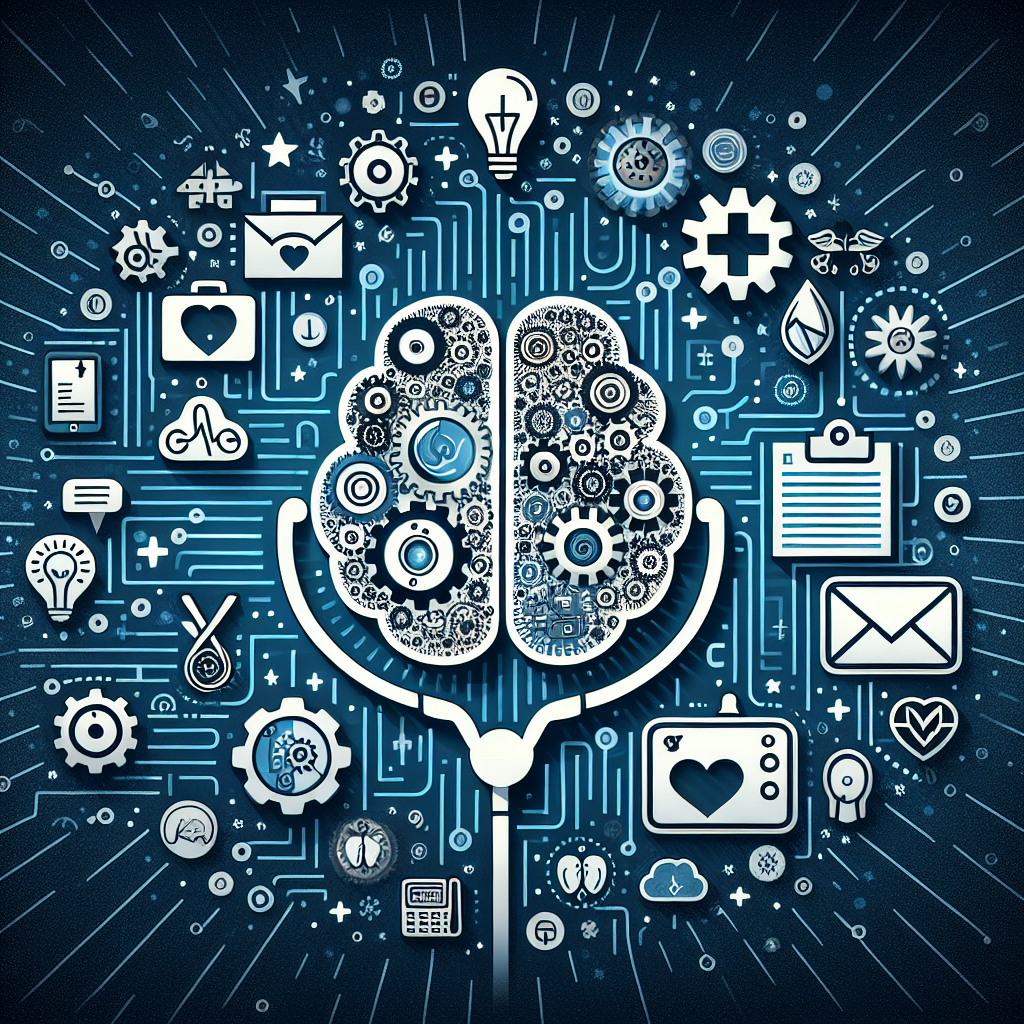Artificial Intelligence (AI) has been revolutionizing various industries, and healthcare is no exception. One of the key areas where AI is making a significant impact is in enhancing communication between healthcare providers and patients. From personalized interactions to improved diagnostic accuracy, AI is transforming the way healthcare communication is conducted, ultimately leading to better patient outcomes.
AI-powered chatbots are one of the most common applications of AI in healthcare communication. These chatbots are designed to interact with patients in a conversational manner, answering questions, providing information, and even scheduling appointments. By leveraging natural language processing (NLP) and machine learning algorithms, these chatbots can understand patient queries and respond in a way that mimics human interaction.
One of the key benefits of AI-powered chatbots is their ability to provide real-time support to patients. Patients can access these chatbots 24/7, allowing them to get immediate answers to their questions and concerns. This not only improves patient satisfaction but also reduces the burden on healthcare providers, freeing up their time to focus on more complex cases.
Additionally, AI-powered chatbots can help streamline administrative tasks, such as appointment scheduling and prescription refills. By automating these processes, healthcare providers can improve efficiency and reduce the risk of errors. This ultimately leads to a more seamless patient experience and better overall care.
Another way AI is enhancing healthcare communication is through personalized interactions. AI algorithms can analyze patient data, such as medical history and symptoms, to provide personalized recommendations and treatment plans. This level of personalization can help patients feel more engaged in their care and ultimately lead to better health outcomes.
Moreover, AI can assist healthcare providers in making more accurate diagnoses. By analyzing vast amounts of medical data, AI algorithms can identify patterns and trends that may not be readily apparent to human healthcare providers. This can lead to earlier detection of diseases and more effective treatment plans.
AI-powered communication tools can also help healthcare providers collaborate more effectively. By analyzing data from various sources, such as electronic health records and medical imaging scans, AI algorithms can provide insights that can inform treatment decisions. This can lead to more coordinated care and better outcomes for patients.
Despite the many benefits of AI in healthcare communication, there are also challenges and concerns that need to be addressed. One of the key concerns is the potential for bias in AI algorithms. If not properly trained and monitored, AI algorithms can inadvertently perpetuate biases in healthcare, leading to disparities in care.
Additionally, there are concerns about the security and privacy of patient data. AI algorithms rely on vast amounts of data to make accurate predictions and recommendations, raising questions about who has access to this data and how it is being used. Healthcare providers must ensure that patient data is protected and used ethically in accordance with regulations such as the Health Insurance Portability and Accountability Act (HIPAA).
FAQs:
Q: How can AI-powered chatbots improve healthcare communication?
A: AI-powered chatbots can provide real-time support to patients, streamline administrative tasks, and offer personalized interactions, ultimately leading to better patient outcomes.
Q: What are some of the concerns about AI in healthcare communication?
A: Concerns include the potential for bias in AI algorithms, as well as security and privacy issues related to patient data.
Q: How can healthcare providers address concerns about AI in healthcare communication?
A: Healthcare providers can ensure that AI algorithms are properly trained and monitored to mitigate bias, as well as implement robust security measures to protect patient data.
In conclusion, AI is playing a vital role in enhancing healthcare communication. From AI-powered chatbots to personalized interactions and improved diagnostic accuracy, AI is transforming the way healthcare providers and patients communicate. While there are challenges and concerns that need to be addressed, the potential benefits of AI in healthcare communication are vast and promising. By leveraging AI technology effectively, healthcare providers can improve patient outcomes and deliver better care.

